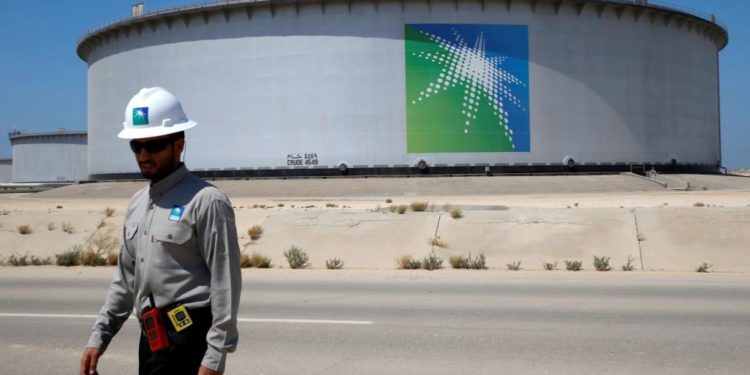
The fate of Saudi Arabia’s oil exports is uncertain in light of international reports confirming that the Kingdom could take more than a month to recover only about half of the lost production, as a result of the attack on two major oil facilities in the east of the kingdom last Saturday.
S&P, an independent global provider of energy and raw material price indices, said Saudi Arabia would need at least a month to compensate for about three million barrels of oil a day, about half of the production that was halted after the attack.
Oil prices have risen sharply in recent days to touch $ 72 a barrel, before dropping slightly yesterday to about $ 68 a barrel, as global markets remain uncertain about when Saudi Arabia can restore oil production of the same size again.
The attack, claimed by the Houthi group in Yemen, sparked a fire in Abqaiq, the world’s largest oil processing plant, and nearby Khurais, where a large oil field is located in eastern Saudi Arabia, halting production of 5.7 million barrels per day, or half Saudi oil production, or 6 percent of world production.
S&P said the kingdom was likely to say whether it can fully supply its customers, although this poses a challenge over time, any indication of delaying or reducing supplies will lead to further price rises in the coming weeks and months.
The threat of a long-term disruption to Saudi oil supplies underscores the lack of spare capacity in the market, estimated at 2.3 million barrels per day, mostly produced by Riyadh.
Meanwhile, Britain’s Capital Economics think tank said that if Saudi Arabia could regain full production by next week, oil prices would quickly fall to around $ 60 a barrel, but if its efforts continue for months and tensions persist, Brent crude could reach 85 dollars a barrel. Oil prices jumped 20 per cent on Monday, marking the biggest rise in the same session since 1991 and the Gulf War.
In return for the losses suffered by Saudi Arabia, especially the direction of its main markets towards alternative outlets for supply, the budgets of many oil-producing countries are expected to see a recovery in the coming period.
The latest attack is the largest and most devastating for Saudi Arabia. In recent months, the energy sector has become the target of Houthi attacks, with Saudi Arabia, in alliance with the UAE, leading a war against them since 2015.
Over the past five months, the kingdom has been hit by nearly four major attacks on its oil facilities, with the first leading to unspecified losses on the Saudi side, but was later revealed when OPEC official data showed the kingdom’s output fell in June.